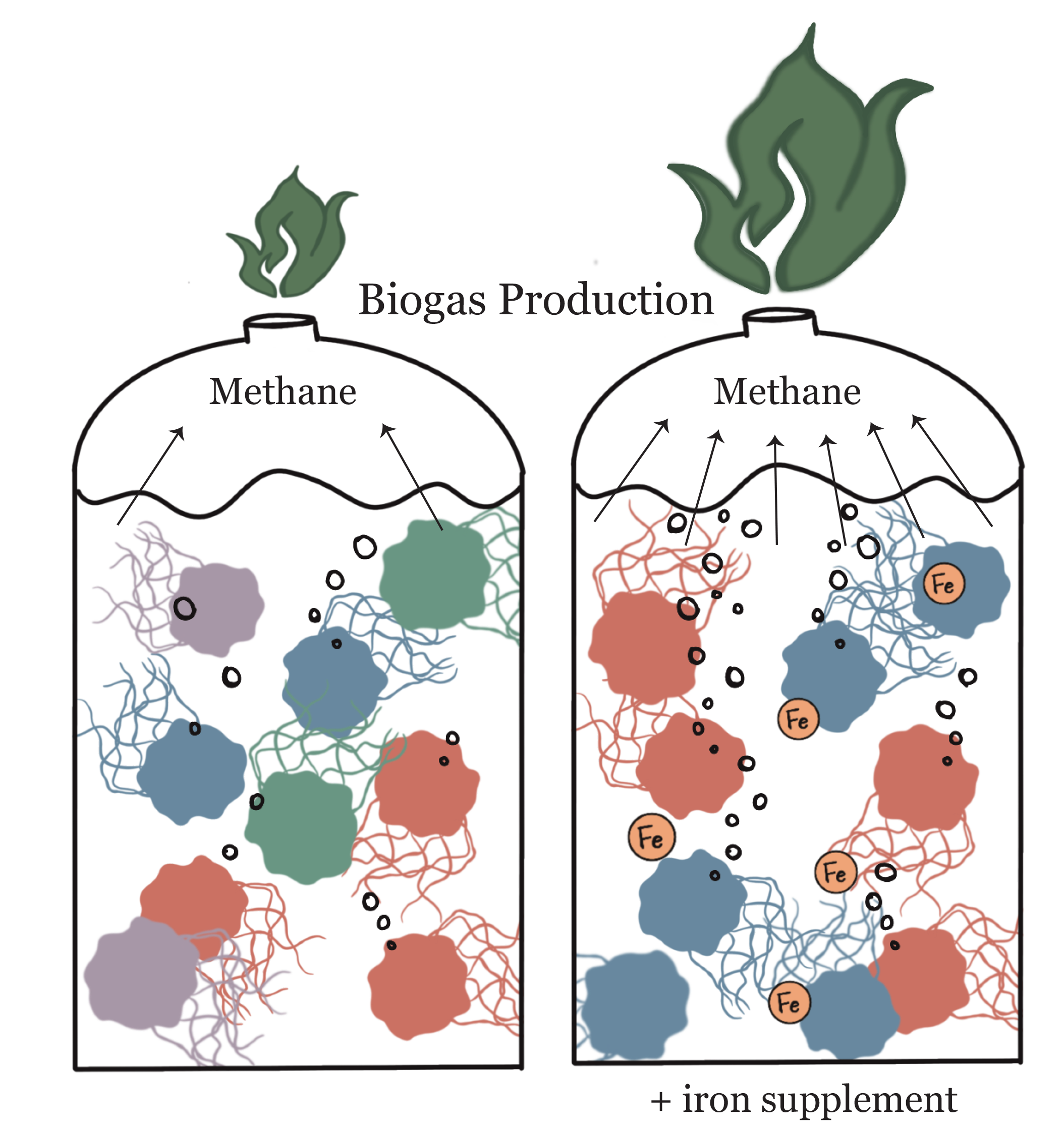Methanogens catalyze the terminal step of organic matter degradation and are foundational to anaerobic digestion and biomethane production. Previous work has shown the addition of iron stimulated the production of biomethane within anaerobic digestors, however the mechanism of adaptation and response of methanogens to this supplementation is unknown.
PhD student Leslie Day (Plant and Microbial Biology), in a project called “Improving anaerobic digestion through bioinformatics-based enhancement of methanogenesis,” is leveraging genetic tools in a model organism, Methanococcus maripaludis, to characterize the genetic components affected by the addition of various iron minerals such as taconite. Bioinformatic analysis of high throughput fitness assays are employed in conjunction with physiological analysis of growth rate and methane production rates to determine the mechanisms contributing to increased biomethane production. The goals are to further the understanding of the role of iron in biomethane production and advance the ability to effectively supplement anaerobic digestors systems for improved energy yield.
Some funding for this project was provided by a 2023 Research Computing-MnDRIVE PhD Graduate Assistantship. The RC-MnDRIVE Graduate Assistantship program supports U of M PhD candidates pursuing research at the intersection of informatics and any of the five MnDRIVE areas:
- Robotics
- Global Food
- Environment
- Conditions
- Cancer Clinical Trials
This project is part of the Environment MnDRIVE area. See the complete list of the RC-MnDRIVE Graduate Assistantships for 2023.
Image description: Growth of a methanogen transposon mutant library in control versus ironsupplemented conditions will show which genes encode proteins that are costly in iron (Fe) supplemented conditions. Mutant strains with a fitness advantage (blue and orange) will dominate in supplemented conditions. Various iron additions will be screened to determine which yields the highest biomethane production relative to biomass.
